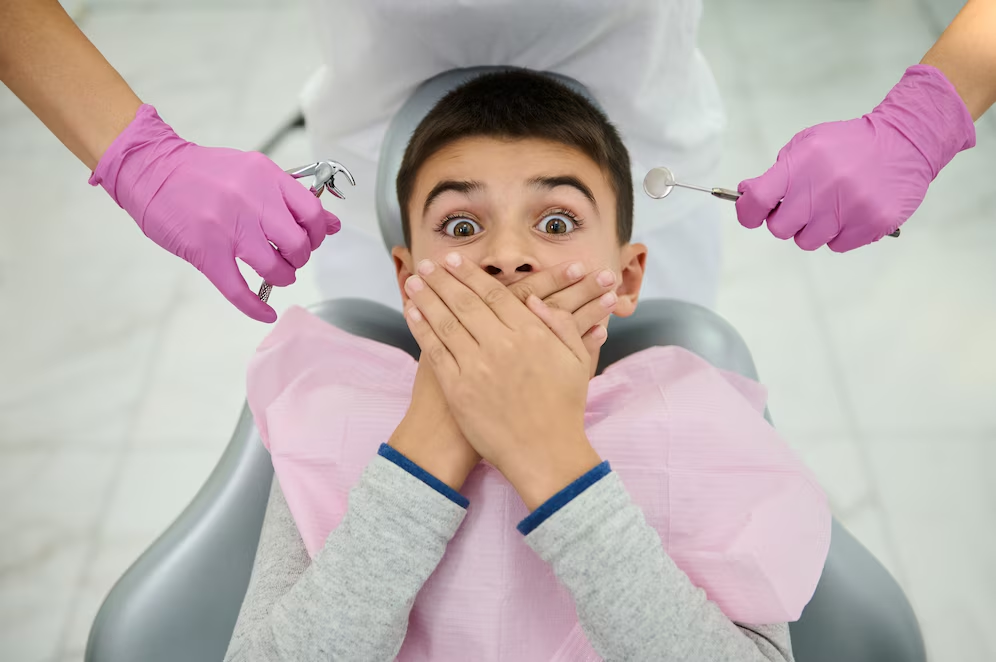Your mouth often gives subtle hints when something isn’t right—but many people ignore the early signs of dental issues until they become painful or even serious emergencies. At Arsh Dental Care, we believe in catching problems early, saving you discomfort, time, and money.
Here are 10 important signs that mean it’s time to schedule a dental appointment—even if your teeth feel fine.
- Tooth Pain or Sensitivity
That dull ache or sharp zing you feel when you drink something hot or cold isn’t something to ignore. Sensitivity often means your tooth enamel is wearing thin, or you may have a cavity or even a cracked tooth.
What it could mean:
Dental decay (cavities)
Exposed tooth roots
Worn enamel
Cracks or fractures in the tooth
Why you shouldn’t wait:
The longer you wait, the more likely the damage will reach the nerve, requiring a root canal or extraction. - Bleeding Gums While Brushing or Flossing
Bleeding gums aren’t just a result of brushing too hard—they’re often a sign of gum inflammation or infection.
What it could mean:
Gingivitis (early-stage gum disease)
Periodontitis (advanced gum disease)
Why you shouldn’t wait:
Left untreated, gum disease can lead to bone loss, loose teeth, and even systemic health problems like heart disease. - Persistent Bad Breath (Halitosis)
If you constantly battle bad breath, even after brushing, flossing, or using mouthwash, something deeper might be going on.
What it could mean:
Gum disease
Tooth decay
Oral infections
Dry mouth
Tonsil stones
Why you shouldn’t wait:
Chronic bad breath can be embarrassing—but it also signals serious oral health concerns that need attention. - Loose or Shifting Teeth
Adult teeth should not wiggle or shift out of alignment. If they do, it often points to weakening bone structure.
What it could mean:
Advanced periodontal disease
Bone loss
Injury to the jaw or teeth
Why you shouldn’t wait:
Delaying treatment can lead to permanent tooth loss and changes in facial structure. - Jaw Pain, Clicking, or Popping
Discomfort in your jaw, especially when chewing or yawning, could indicate problems with your TMJ (temporomandibular joint) or result from nighttime teeth grinding.
What it could mean:
TMJ disorder
Bruxism (teeth grinding)
Stress-related tension
Bite misalignment
Why you shouldn’t wait:
Ignoring jaw issues can lead to chronic pain, headaches, and difficulty eating or speaking. - Sores, Patches, or Lumps in the Mouth
Unexplained ulcers, red or white patches, or lumps on your gums, tongue, or cheeks should always be checked.
What it could mean:
Canker sores
Fungal infections (like oral thrush)
Oral cancer (especially if the sore lasts more than 2 weeks)
Why you shouldn’t wait:
Early detection of oral cancer can be life-saving. Any changes in your mouth’s tissues should be taken seriously. - Dry Mouth (Xerostomia)
If your mouth constantly feels dry, it could interfere with your ability to chew, taste, or swallow—and can speed up tooth decay.
What it could mean:
Side effect of medications
Diabetes or autoimmune diseases
Salivary gland dysfunction
Why you shouldn’t wait:
Saliva protects your teeth and neutralizes acids. Without it, your oral health rapidly declines. - Difficulty Chewing or Swallowing
Pain or discomfort while eating could stem from tooth decay, infection, or jaw misalignment.
What it could mean:
Tooth abscess
Cracked or damaged teeth
TMJ issues
Oral infections
Why you shouldn’t wait:
Eating should never be painful. Ignoring these signs could lead to infections that spread to other parts of your body. - Changes in the Appearance of Your Teeth
Discoloration, cracks, or sudden changes in tooth shape aren’t just cosmetic—they may reveal deeper problems.
What it could mean:
Enamel erosion
Fractures or decay
Teeth grinding (bruxism)
Acid reflux damage
Why you shouldn’t wait:
Catching these signs early means we can fix the issue with simple treatments instead of full restorations. - It’s Been Over 6 Months Since Your Last Dental Checkup
Even if you feel perfectly fine, routine dental visits are crucial for prevention.
🦷 What we check during your visit at Arsh Dental Care:
Early signs of cavities or gum disease
Oral cancer screening
Professional cleaning to remove plaque and tartar
Bite alignment and jaw health
Why you shouldn’t wait:
Most serious dental problems are silent in the beginning. Regular visits save you from emergencies and costly treatments later.
Take Charge of Your Oral Health Today

